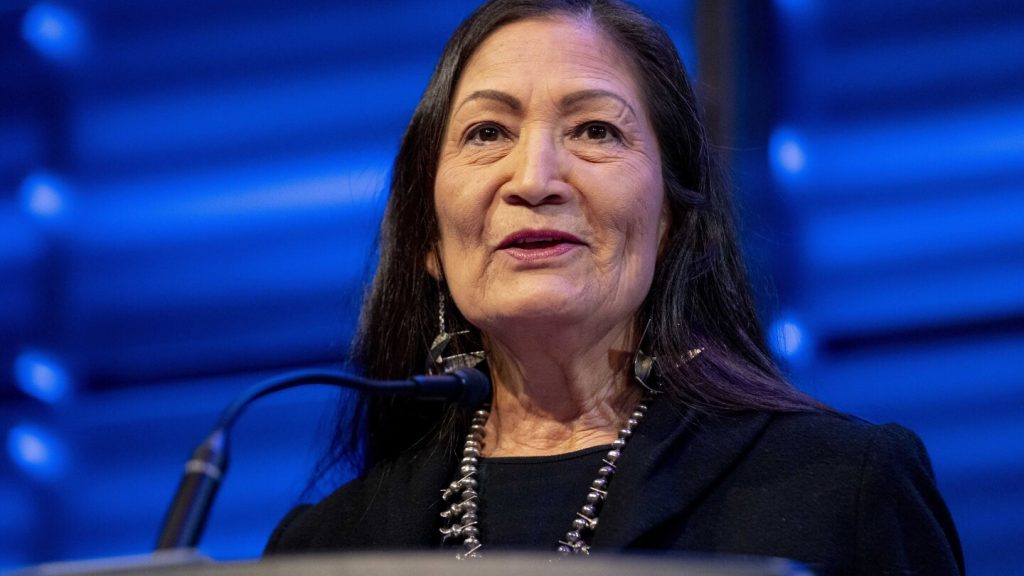The Biden administration issued a final rule on Wednesday aimed at curbing methane leaks from oil and gas drilling on federal and tribal lands, as part of its efforts to combat climate change. The rule, issued by the Interior Department’s Bureau of Land Management, will tighten limits on gas flaring and require energy companies to improve methods to detect methane leaks. This action follows a comprehensive methane-reduction plan announced by the Environmental Protection Agency in December, targeting emissions from existing oil and gas wells nationwide. Methane is a potent greenhouse gas that contributes significantly to global warming.
Oil and gas production is the nation’s largest industrial source of methane, making it a key target for the Biden administration. Methane is considered a climate “super pollutant” that is many times more potent in the short term than carbon dioxide. The final rule issued by the Bureau of Land Management updates regulations that are over 40 years old, imposing stricter limits on flaring and requiring companies to find and fix leaks. The goal is to prevent waste, protect the environment, and ensure a fair return to American taxpayers and tribal mineral owners through higher royalty payments.
Interior Secretary Deb Haaland stated that the rule would help prevent waste, protect the environment, and ensure a fair return to American taxpayers. By leveraging modern technology and best practices to reduce natural gas waste, the administration aims to increase accountability for oil and gas operators and benefit energy communities for generations to come. The rule, which goes into effect in June, is expected to generate over $50 million per year in additional royalties while preventing billions of cubic feet of natural gas from being wasted.
Environmental groups have praised the rule, emphasizing the importance of reducing methane emissions to combat climate change. Jon Goldstein from the Environmental Defense Fund stated that strong methane waste rules from the Interior Department are crucial for protecting taxpayers from wasted energy resources. Tannis Fox from the Western Environmental Law Center highlighted the benefits of eliminating waste from routine venting and flaring, which conserves energy resources, lessens the negative impact on the climate, and protects the health of frontline communities.
The American Petroleum Institute, the lobbying group for the oil and gas industry, criticized the new rule as an overreach that could hamper U.S. energy production. The API supports a smart regulatory framework for reducing methane emissions but raised concerns about overlapping regulations and lack of coordination between policymakers. Arizona Rep. Raul Grijalva commended the rule as a much-needed step to fight climate change and protect the health of communities near drilling sites in the West. He highlighted the lax operations of Big Oil and Gas and expressed gratitude for the Biden administration’s bold action in holding fossil fuel facilities to a higher standard.
In addition to the EPA rule and the Interior Department’s methane regulations, a 2022 climate law approved by Congress will impose a fee on energy producers that exceed a certain level of methane emissions. This fee, initially set at $900 per metric ton of methane, marks the first time the federal government will directly tax greenhouse gas emissions. The rule and legislative actions signal a significant shift towards stricter regulations and penalties for methane emissions in the oil and gas industry, reflecting a broader commitment to combatting climate change and protecting the environment.


